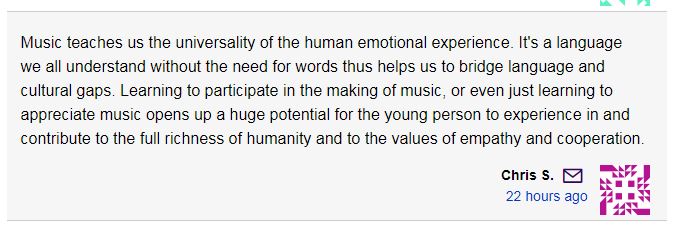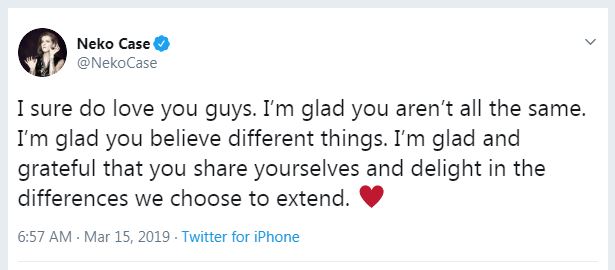“Art gets better when it is valued. Life is better with art.” —Jason Isbell, 3/2019
Author: MoST
tweet from Neko Case
quote from Jimi Hendrix
“You see, music is so important. I don’t any longer dig the pop and politics crap. That’s old-fashioned. It was somebody’s personal opinion. But politics is old hat. Anyone can go round shaking babies by the hand and kissing the mothers, and saying that it was groovy. But you see, you can’t do this in music. Music doesn’t lie. I agree it can be misinterpreted, but it doesn’t lie. When there are vast changes in the way the world goes, it’s usually something like art and music that changes it. Music is going to change the world next time.” —Jimi Hendrix, 1970
study: music in relation to Alzheimer’s and dementia
“The part of your brain responsible for ASMR catalogs music, and appears to be a stronghold against Alzheimer’s and dementia.”
quote from Roger Waters
“That’s why I call the show Us & Them, because I believe there is no ‘them.’ There’s only ‘us.'” —Roger Waters, June 2017
quote from a public internet forum
posted in a thread discussing the importance of music education in public schools:

quote from Billy Gibbons
“Our skin colours may vary, but what’s upstairs – there’s certain things we’ve all got in common.” –Billy Gibbons, 2011
quote from Albert Einstein
“If I were not a physicist, I would probably be a musician.
I often think in music. I live my daydreams in music. I see my life in terms of music…. I get most joy in life out of music.” –Albert Einstein
quote from Thomas Hirschhorn
“I believe that every human being has an understanding of art. What is separating us is smaller than what is unifying us.” —Thomas Hirschhorn
quote from Willie Nelson
“Once you replace negative thoughts with positive ones, you’ll start having positive results.”—Willie Nelson, 2006


